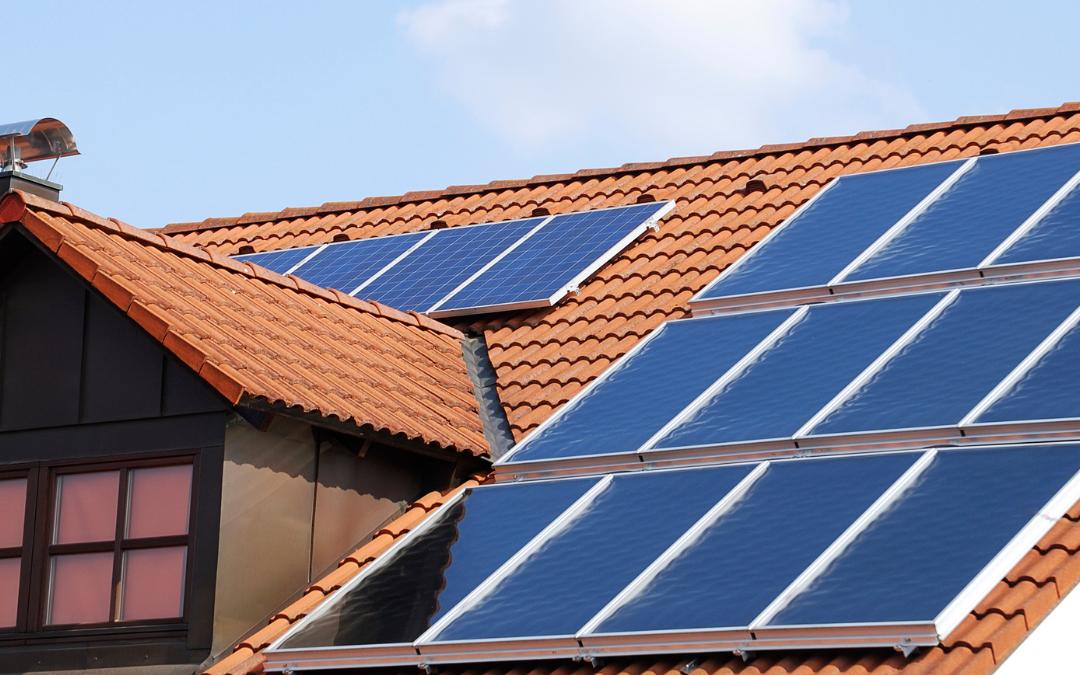It absolutely is! Let us explain.
Times are changing. Electricity prices are through the roof and the impact of climate change is felt everyday.
Now more than ever, it is crucial to make the switch to renewable energy to safeguard your wellbeing and that of future generations.
Setting up a solar system for your home is one of the best ways to reduce your carbon footprint and save money. It does require an investment but the long-term environmental benefits and financial savings far outweigh the initial cost.
But First Things First…What is Rooftop Solar?
Rooftop solar consists of a system of photovoltaic solar panels placed on the roof of a house or business that generates electricity for the building. It is a cleaner, more eco-conscious way to support your energy needs as it doesn’t emit any carbon emissions and helps decrease (and potentially eliminate) your dependence on fossil-fuel based energy from the grid.
Before going solar it’s important to assess your energy needs and the suitability of your roof. This can be done with the help of a qualified professional. You need to pay special attention to the age of your roof, its durability, and how much sun exposure it receives. Damaged or weakened roofs would require constant maintenance and wouldn’t be able to withstand the weight of solar panels. Making sure that your roof receives maximum sun exposure will also ensure that it generates as much solar power as possible.
What Are the Benefits of Rooftop Solar?
- It helps reduce your carbon footprint: Solar panels don’t release any carbon emissions. Transitioning to solar energy gives you access to a cleaner energy source and reduces your reliance on non-renewable grid energy. The more people that make the switch to solar, the more widespread its carbon-reducing impact can be on air quality and the environment.
- It helps you save money over the long term: Solar energy reduces your reliance on grid energy, thus making you less vulnerable to rising electricity prices. Moreover, if you factor in any additional incentive or tax credit that you use for your solar panels, you get to benefit from additional long-term savings.
- It will boost your home’s value: A rooftop solar system boosts your home’s value because it signals to potential buyers that your home is energy-efficient and incurs lower utility costs. Additionally, they can enhance your home’s visual appeal thanks to the unique designs for panels that are available to you!
How Can I Afford Solar?
There are various options available to make rooftop solar more affordable for you:
Leasing: This applies to homeowners who don’t actually own their solar system and instead lease it from a developer who is responsible for the installation and maintenance of the system. By paying this developer a fixed fee, the homeowners don’t have to worry about the installation and maintenance costs of their system which helps them save money.
Loans: By taking a loan for the purchase of their system, homeowners still get to set up their own solar system even though they might not be able to completely afford it initially. Just like they would for a car or house loan, all they have to do is pay monthly installments on their loan to their lender over a specific term period.
Purchase Power Agreements: A purchase power agreement is similar to a lease in that the system is owned and maintained by a solar provider, except, with a PPA, there is no monthly fixed fee. Instead, the homeowner pays for the electricity generated by the system at a lower rate than the utility.
The Federal Investment Tax Credit (ITC): The Federal ITC is a 30% tax credit available to anyone who owns a solar energy system. It makes it easier for families or businesses that are interested in rooftop solar to get reductions on any installation costs associated with their solar system (ex: installation, battery storage etc) once they file their federal taxes.
State Incentives: Through rebates, tax credits, and other incentives, individual states’ policies help make rooftop solar more affordable for consumers and help them supplement their long term savings. For example, rooftop solar owners in New Jersey are 100% exempt from paying taxes on their solar systems. To find additional solar incentives in your state, simply enter your zip code in the DSIRE database.
A Few Factors that Affect Your Savings
The factors that can influence just how much you save with your rooftop solar system are important to keep in mind. For one, your energy consumption habits and the capacity of your system are hugely important. You could also increase your savings with the bill credits you’ll receive from selling excess energy produced by your system through net metering.
We offer sustainable and efficient rooftop solar solutions for your energy needs. If you are ready to make the switch, reach out to us and our team will answer any question you may have!

